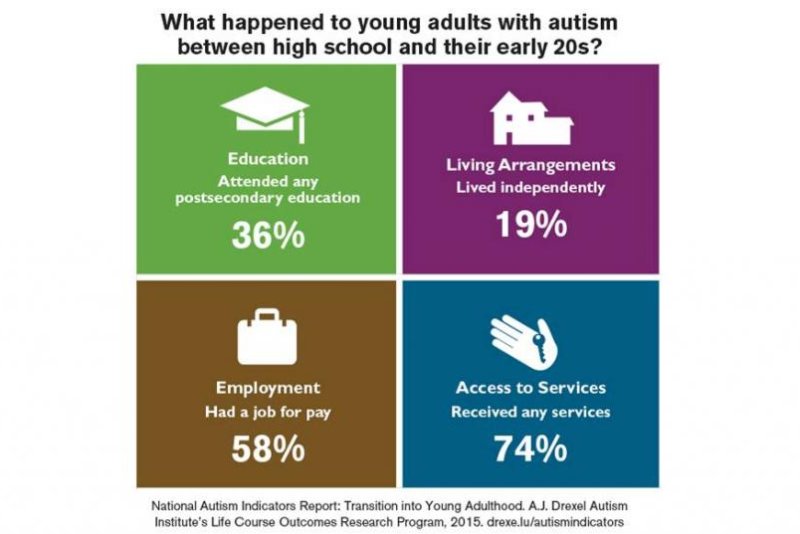Researchers have release a new report detailing the challenges of autism in adulthood. Photo by Drexel University
PHILADELPHIA, April 21 (UPI) -- Autism doesn't end at adulthood. For those on the spectrum, the transition from adolescence to adulthood can be tremendously difficult.
According to a new report from researchers at Drexel University, 37 percent of young adults with autism are disconnected throughout their early 20s -- meaning more than one-third don't get a job or continue on to secondary education after high school. For young adults with other types of disabilities, that number is only 8 percent.
The figures are just a few of several new pieces of data published by researchers at Drexel's A.J. Drexel Autism Institute in an effort to raise awareness about the challenges of autism in adulthood.
"When it comes to understanding how well our nation is helping youth affected by autism, our situation is like driving a car through the fog with no dashboard," Paul Shattuck, an associate professor at Drexel and leader of the school's Course Outcomes Research Program, said in a press release. "We know we're moving, but we do not have many indicators to tell us how fast we are going, whether we're getting close to our goals, or what kind of mileage we are getting from the resources fueling our trip."
Shattuck and others contend that while support resources and educational opportunities for parents and young children dealing with an autism diagnosis are many, these services dissipate as children transition to adulthood.
As detailed in the "National Autism Indicators Report: Transition into Young Adulthood," researchers found more than a quarter of all young adults with autism, whether disconnected or not, go without any services at all.
Not only are services and support limited for adults with autism, but so are tracking and research into outcomes, researchers point out. Shattuck and his colleagues ask: how can we know if the support services, education and training for children with autism is working if we're not continuing to help and trying to understand autistic adults?
"This is the most comprehensive report to date describing what we know about young adults with autism as a whole and across the various parts of their lives. Yet, it represents only a fraction of what we need to know. Huge gaps remain," said Anne M. Roux, the report's lead author.
"While the picture looks bleak, we found that some of those who have the most significant levels of challenges do go on to find jobs and attend further education," added Shattuck. "A critical next step is to figure out what facilitates connections to outcomes and what helps people to continue to succeed across their early adult years."















